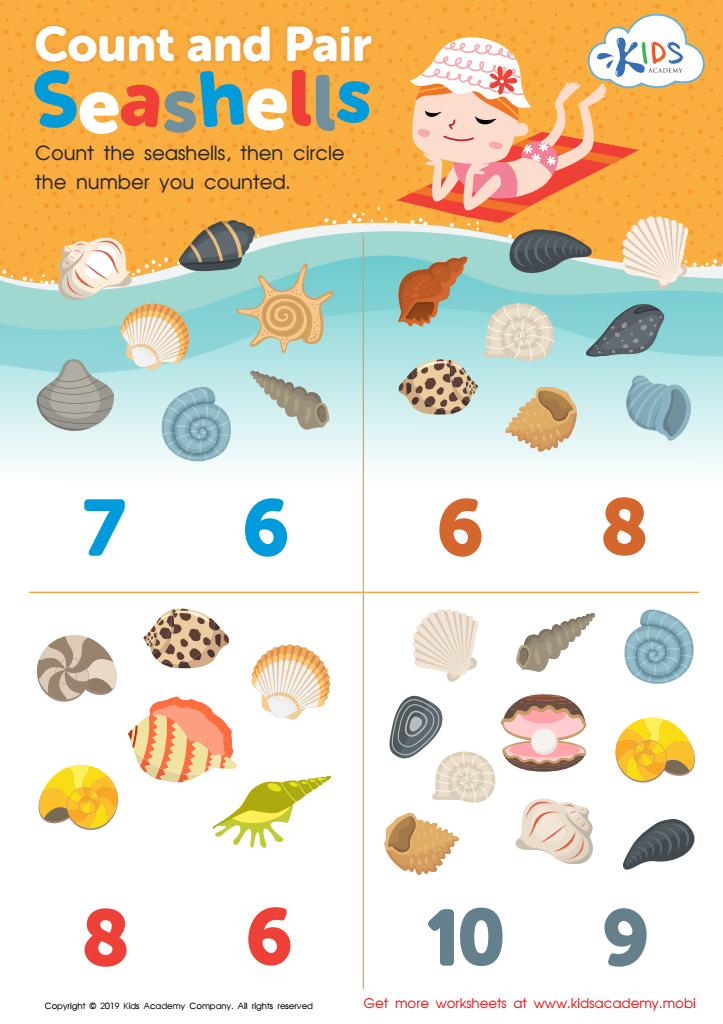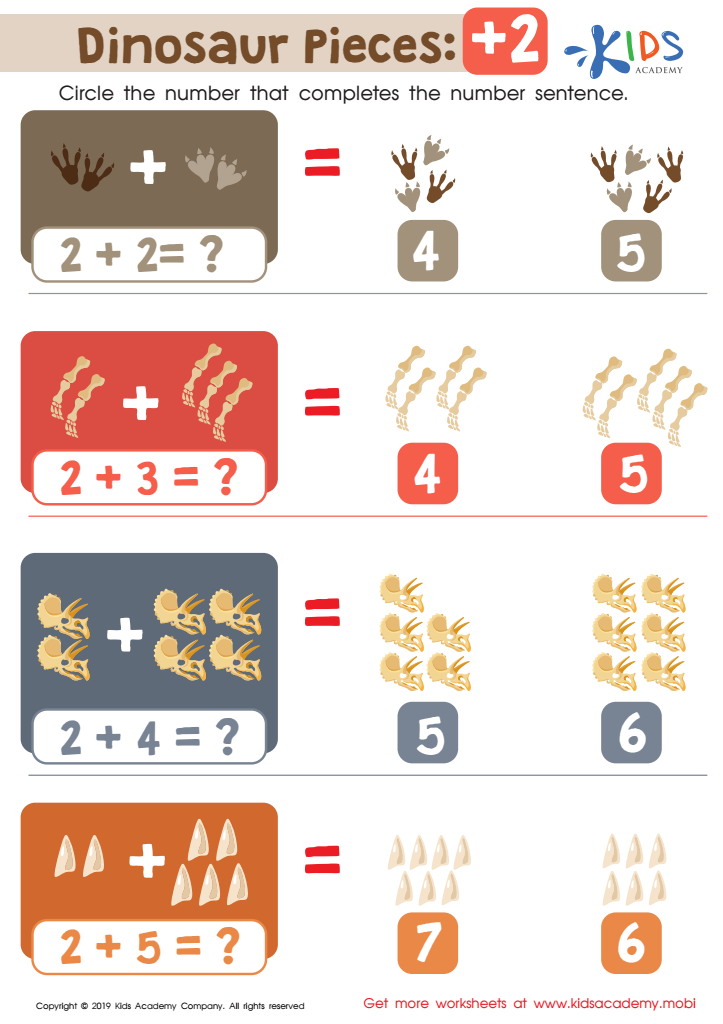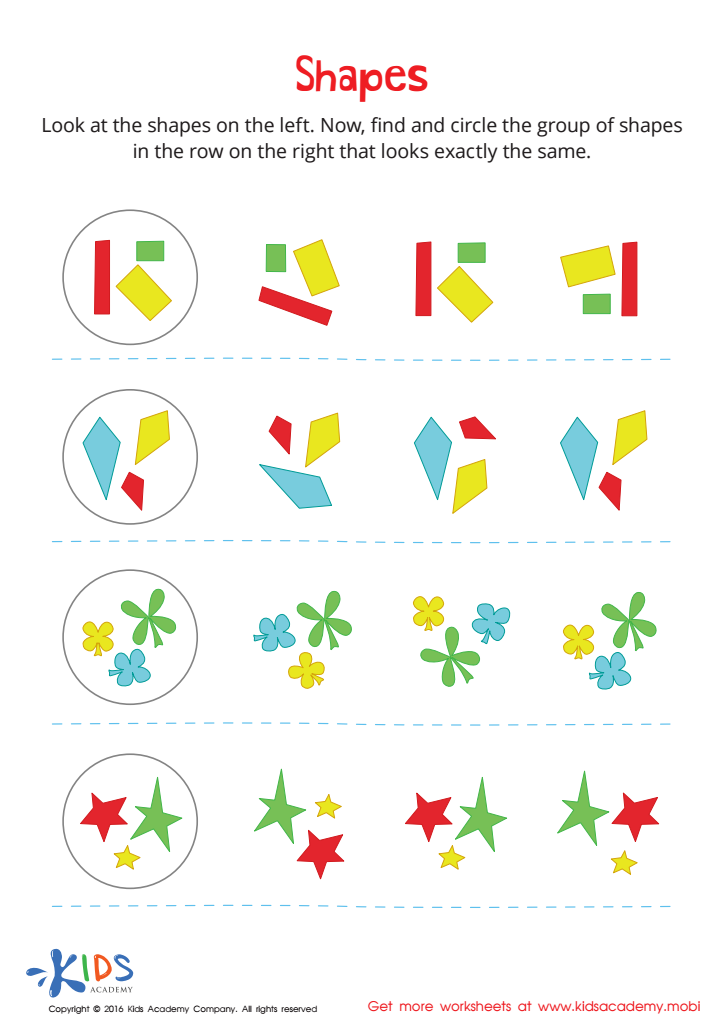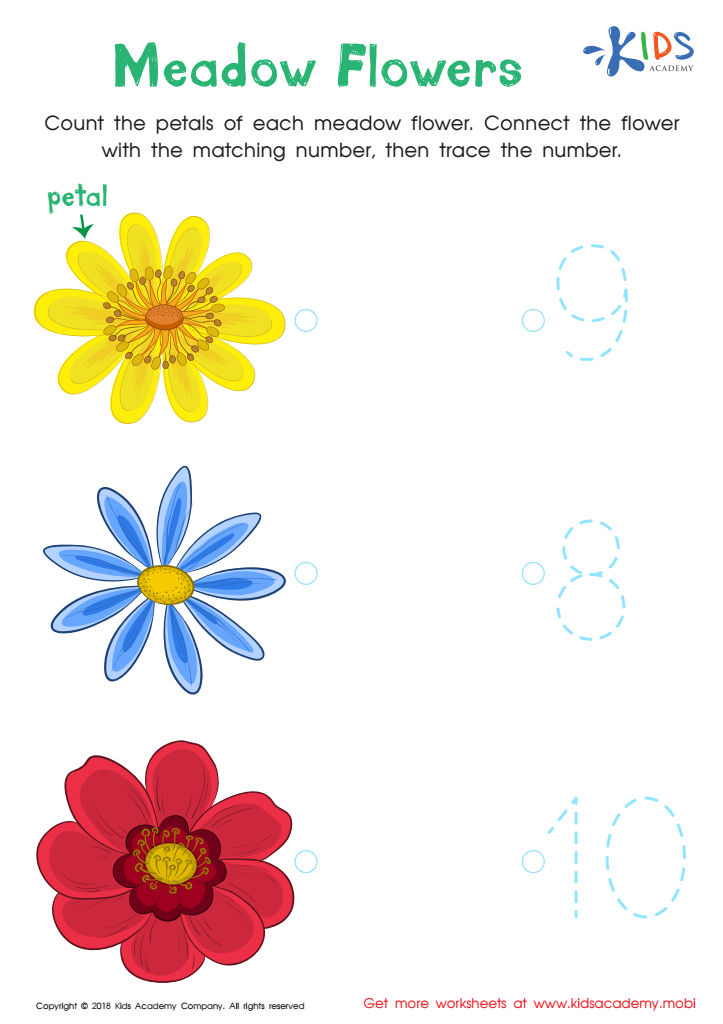Fine motor development Kindergarten Math Worksheets
4 filtered results
-
From - To
Enhance your child's fine motor skills with our engaging Kindergarten Math Worksheets! Designed specifically for young learners, these worksheets incorporate fun and interactive activities that promote hand-eye coordination and dexterity while teaching essential math concepts. Kids will enjoy tracing numbers, shapes, and patterns, fostering their ability to grip pencils and scissors effectively. Our worksheets cater to various skill levels, ensuring that every child can thrive. Ideal for classroom use or at-home practice, these resources support early math learning while developing crucial motor skills. Download and watch your child develop confidence and proficiency in math through playful learning experiences!


Count and Pair Seashells Worksheet


Dinosaur Pieces: +2 Worksheet


Shapes Worksheet


Kindergarten Number Tracing: Medow Flowers Worksheet
Fine motor development is crucial for kindergarten math skills, and both parents and teachers should be attentive to this aspect of early childhood education. Fine motor skills involve small muscle movements, particularly in the hands and fingers, which are essential for various math tasks such as writing numbers, manipulating objects, and using tools like scissors and calculators.
As children develop their fine motor skills, they gain dexterity and control, making it easier to engage in hands-on math activities such as counting objects, sorting shapes, and measuring. These foundational skills not only enhance a child’s ability to participate in math-related tasks but also boost their confidence and independence in learning.
Furthermore, strong fine motor skills contribute to a child’s overall academic success. Children who struggle with fine motor tasks may experience difficulties in completing math assignments efficiently, which can hinder their overall understanding and enjoyment of the subject. By supporting fine motor development through activities like drawing, cutting, and crafting, parents and teachers create a rich learning environment that fosters a positive association with math.
Ultimately, prioritizing fine motor skills enhances children's readiness for school tasks, promotes cognitive development, and lays the foundation for future learning in mathematics and beyond.
 Assign to My Students
Assign to My Students


.jpg)













